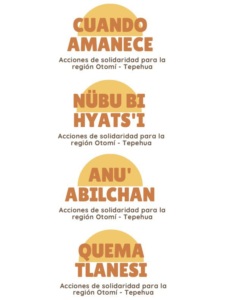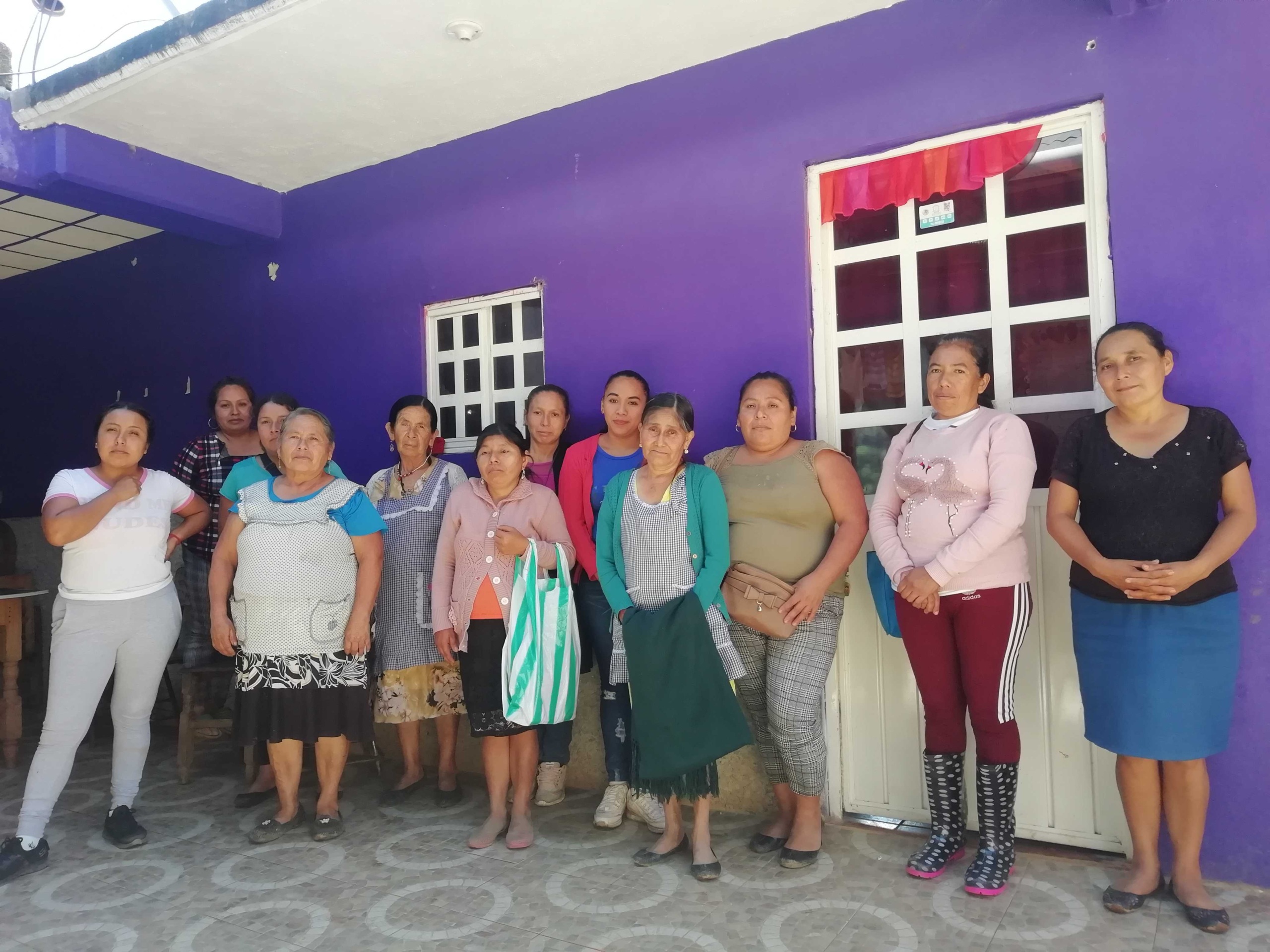Fieldwork empowering women
 PSYDEH looks to end 2021 fieldwork on a high by empowering Indigenous women to produce small, collective work projects that have a direct impact on their own communities via an initiative we call “Cuando Amanece” (Nübu Bi Hyats’i / Anu’ abilchan / Quema tlanesi). We do this because, even in the midst of the pandemic and climate change effects like more extreme weather, OR because of it, we must strengthen and accompany problem-solving-focused, solidarity actions among groups of organized women.
PSYDEH looks to end 2021 fieldwork on a high by empowering Indigenous women to produce small, collective work projects that have a direct impact on their own communities via an initiative we call “Cuando Amanece” (Nübu Bi Hyats’i / Anu’ abilchan / Quema tlanesi). We do this because, even in the midst of the pandemic and climate change effects like more extreme weather, OR because of it, we must strengthen and accompany problem-solving-focused, solidarity actions among groups of organized women.
What is Cuando Amanece (“When the Sun Rises”)?
This initiative supports women in Nahua, Otomí, and Tepehua Indigenous communities to identify collective needs and then co-create and implement short-term solutions with the aim of making a small, measurable social and/or economic impact. For example, in one municipality, the majority of women’s groups will use our seed funding and project planning and production support on such enterprises as animal husbandry (poultry farming for egg production) and organic gardens (cultivation of cucumber, radish, chili, lettuce, and other region-conducive crops).
In numbers, we aim to support two groups of Indigenous women. The first is up-to-20 community groups that we have been working with since March as a part of the first phase of our 2021-2024 program. The second group includes up-to-15 women leaders from the network of collectives we’ve supported since 2015.
Our goal 
Cuando Amanece doubles down on our bet that vulnerable women, when offered the right support, can and will improve their own living conditions, sowing the seeds for their leading the sustainable development of their own communities. In the immediate, this activity will:
(1) Deliver short-term impact demanded by women during the pandemic and environmental crises.
(2) Offer groups of women real-world experience operating as a collective producing their own projects.
(3) Identify and strengthen the bonds between and among PSYDEH and a large group of women leaders ready to participate in multi-year work.
(4) Give needed experience organizing and training collectives of women to our new Field Corps of Indigenous women professionals.
In the longer term, through and with the implementation of these collective work initiatives, we will have leveraged the progress made this year with advances like our new field office and Field Corps. This, in turn, builds off of what we’ve achieved with women leaders of collectives since 2015, with the goal of cementing the foundation we need to move to level two of our multi-year program in January 2022: organizing four municipal-level, Indigenous women’s cooperatives which generate income while solving local problems by 2024.
Why now?
“Cuando Amanece” confronts hard 2020-2021 realities in rural Mexico and reflects how field programming must evolve to meet local women’s demands. We see, hear, and feel how local women partners and their communities have struggled through varied crises caused by the pandemic and climate change, how they need and deserve both our long-term focused training and immediate assistance. This initiative’s unique construction reflects our ability to adapt to local demands and shows how our fieldwork launched in March can be the platform on which future sustainable-impact-oriented work is built.
